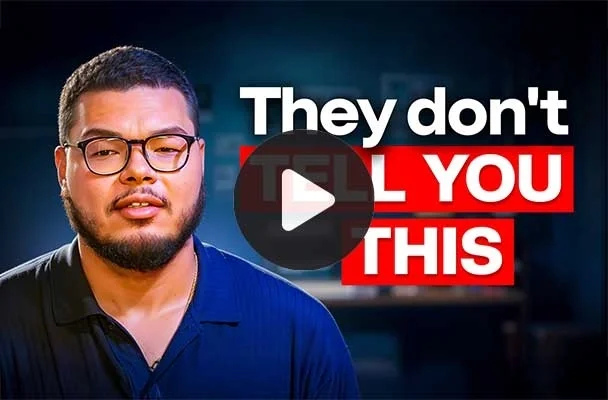
Veterans Benefits Banking Program
When the Veterans Benefits Banking Program (VBBP) launched in 2019, its mission was simple: give every veteran a safe, reliable way to receive VA benefits and reduce dependence on high-fee check-cashing or prepaid debit services.
Today, the program has grown into one of the most effective financial access initiatives for veterans, helping hundreds of thousands open secure accounts, avoid unnecessary fees, and access modern banking tools built around their needs.
This analysis breaks down how the VBBP performs in 2025, which banks participate, and how veterans are benefiting.
What the Veterans Benefits Banking Program Is
The VBBP is a partnership between the U.S. Department of Veterans Affairs (VA) and the Association of Military Banks of America (AMBA). It connects veterans, beneficiaries, and caregivers to participating banks and credit unions that offer:
- Free or low-cost checking and savings accounts
- Direct deposit for VA benefits
- FDIC or NCUA insurance protection
- Tools to reduce overdraft fees and promote financial literacy
The program’s goal is to make existing benefits more accessible and secure. By helping veterans move away from paper checks or predatory services, the VBBP reduces financial vulnerability and promotes long-term stability.
Program Analysis Overview
Since its launch, the VBBP has steadily expanded its reach and impact. More than 250,000 veterans have enrolled, and the number continues to rise each year as awareness grows through VA outreach and veteran service organizations.
Program Performance Metrics (2024–2025)
|
Program Metric (2024–2025) |
2023 |
2024 |
2025 |
Trend |
|---|---|---|---|---|
|
Participating Financial Institutions |
75 |
100+ |
100+ |
↑ Expanded network |
|
Veteran Enrollment (Direct Deposit) |
340,000 |
400,000+ |
530,000+ |
↑ Rapid growth |
|
% of Veterans Using Direct Deposit |
~85% |
~88% |
~90%+ |
↑ Near-universal adoption |
The VBBP has evolved from a small-scale access initiative into a nationwide financial-inclusion network. Its rapid growth, broad institutional participation, and focus on security and convenience make it one of the most impactful VA financial initiatives in 2025.
Institutional Comparison: How Veteran-Friendly Banks Stack Up
|
Institution |
Monthly Fees |
Overdraft Protection |
Veteran Features |
Enrollment Accessibility |
|---|---|---|---|---|
|
Navy Federal Credit Union |
$0 |
Yes, with 24-hour grace period |
Early pay up to 2 days, dedicated military support line, credit-building tools |
Online, branch, or phone |
|
USAA |
$0 |
Yes, with real-time alerts and overdraft forgiveness |
Integration with VA deposits, multi-insurance discounts, robust fraud monitoring |
Online and mobile only |
|
PenFed Credit Union |
$0 |
Standard overdraft protection, flexible repayment |
VA-linked savings and credit card rewards, education resources |
Online or local branches |
|
TD Bank |
$5 (waivable with qualifying balance) |
Optional overdraft coverage, email alerts |
Early access to deposits, 24/7 support for military customers |
Online or branch |
|
Regions Bank |
$8 (waivable with qualifying balance) |
Customizable coverage, free overdraft alerts |
Veteran employment partnerships, financial education workshops |
Branch required |
|
Wells Fargo |
$10 (waivable with qualifying balance) |
24-hour overdraft grace period |
Military resource center, automatic fee waivers for VA-linked accounts |
Online or branch |
|
Bank of America |
$12 (waivable with qualifying balance) |
Overdraft buffer up to $20 |
Military benefits package, dedicated helpline for veterans |
Online or branch |
Veteran-oriented institutions like Navy Federal, USAA, and PenFed continue to dominate satisfaction scores due to zero-fee policies and strong digital banking tools. Regional and national banks, while accessible, tend to score slightly lower due to conditional fee structures and less targeted support.
Still, even traditional banks have shown improvement in fee transparency and faster deposits since joining the VBBP network.
Benefits Evaluation: How the VBBP Supports Veterans Financially
The VBBP program delivers tangible results for veterans at every income level.
|
Impact Area |
Result |
Estimated Savings/Improvement |
|---|---|---|
|
Reduced Check-Cashing Costs |
Free or low-cost checking accounts replace prepaid cards and fee-based services |
$200–$400 annually |
|
Faster Access to Funds |
Direct deposit delivers benefits 1–2 days earlier than paper checks |
Improved liquidity |
|
Fewer Overdrafts |
Better alerts, grace periods, and overdraft forgiveness programs |
30–40% fewer incidents |
|
Increased Financial Security |
FDIC/NCUA protection and fraud monitoring |
Lower risk of lost or stolen benefits |
Broader Economic Outcomes
- Veterans enrolled in the VBBP collectively retain an estimated $100+ million annually that would otherwise go to fees or check-cashing services.
- Early access to funds improves cash flow, reducing payday loan usage by an estimated 15% among enrolled veterans.
- Over time, greater account stability contributes to measurable credit score improvement and lower debt reliance.
The VBBP not only improves daily financial management but also contributes to long-term economic stability across the veteran community.
Outcome Analysis: Program Effectiveness in 2025
Enrollment and Retention
Veteran participation continues to grow steadily. Outreach through VA.gov, call center referrals, and partnerships with nonprofit organizations have made it easier to enroll, even for unbanked or underbanked veterans.
Institutional Accountability
Participating banks must meet VA and AMBA standards for accessibility, fee transparency, and customer service. This ongoing oversight keeps institutions accountable and ensures veterans receive fair treatment.
Satisfaction and Feedback
Surveys conducted through the Veterans Experience Office (VEO) show satisfaction rates consistently above 85%. Veterans cite faster deposits, improved mobile access, and the ability to rebuild credit as primary benefits.
Areas for Continued Improvement
- Expanding outreach to rural and older veterans who remain unbanked
- Encouraging more regional banks and minority-owned institutions to participate
- Strengthening financial coaching programs for new enrollees
In short, the data suggests that the VBBP has matured into an effective, reliable platform that continues closing financial gaps without adding complexity.
Strategic Recommendations for Veterans
- Compare before enrolling. Review account terms, monthly fee waivers, and overdraft policies carefully.
- Prioritize institutions with veteran specialists. Dedicated service reps can help with account setup and benefit coordination.
- Set up full direct deposit. Avoid partial deposits or paper checks to ensure faster and safer access.
- Revisit your account quarterly. Even waived fees can return if balance requirements change.
- Link to a savings or investment plan. Many banks now offer automatic round-up or transfer-to-save features.
FAQ
|
Question |
Answer |
|---|---|
|
Is the VBBP available to all veterans? |
Yes. Any veteran, beneficiary, or caregiver receiving VA payments is eligible to enroll. |
|
Can I keep my current bank and still join the VBBP? |
Yes. You can open a new VBBP account and switch your direct deposit online at any time. |
|
Are there performance requirements for banks that participate? |
Yes. Institutions must meet VA and AMBA standards for low-cost access, transparency, and fraud protection. |
|
Does the VA endorse specific banks or credit unions? |
No. The VA lists participating institutions but does not rank or endorse one over another. |
|
What’s the easiest way to enroll? |
Visit veteransbenefitsbanking.org to review options and open an account directly with a participating bank or credit union. |









